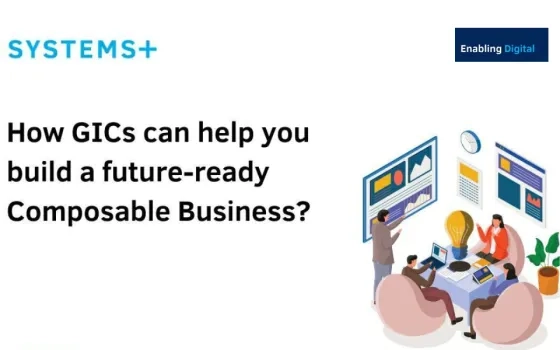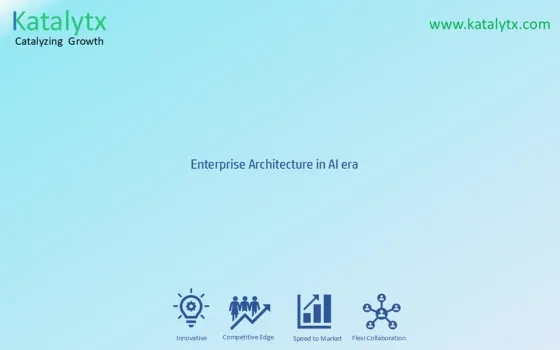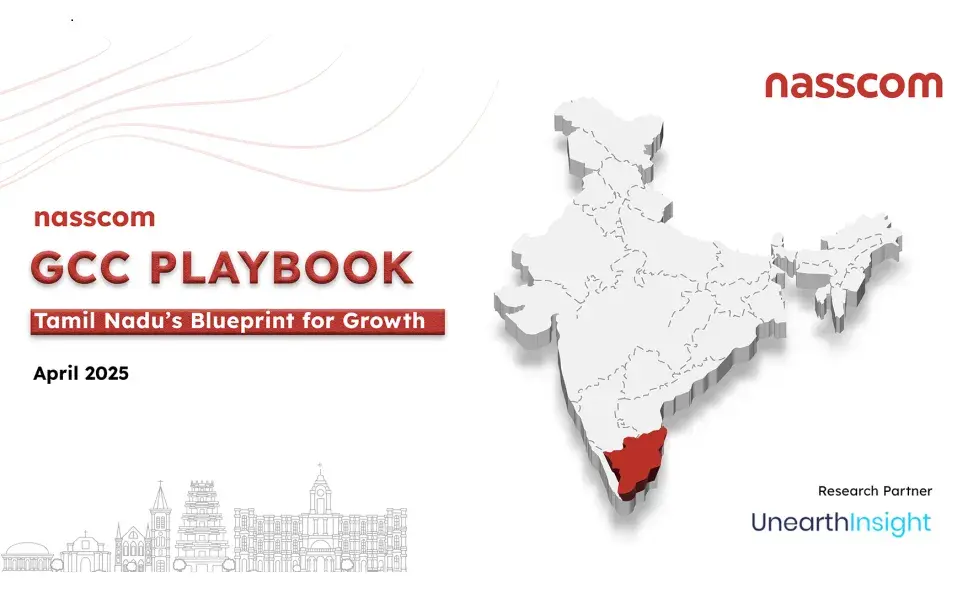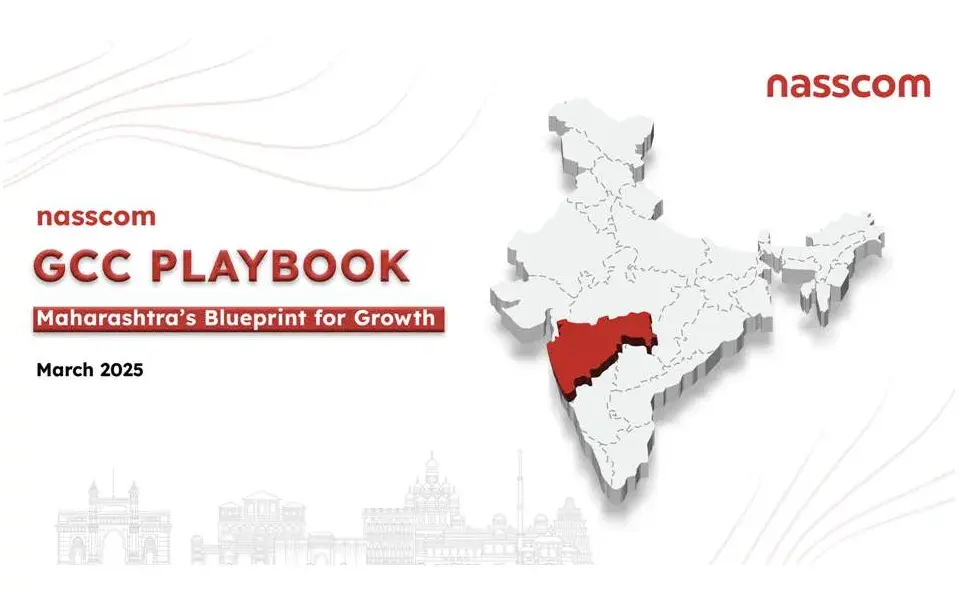Introduction
Imagine a world where innovation isn't just confined to corporate headquarters but is
seamlessly woven into every facet of global operations. Welcome to the era of Global
Capability Centers (GCCs)—the new powerhouses of innovation that are redefining how
businesses stay ahead in today’s fiercely competitive market. No longer just back-office
support centers, GCCs are now at the heart of strategic growth, driving innovation that keeps
companies not just surviving, but thriving. According to a 2023 NASSCOM report, India
alone is home to over 1,300 GCCs, collectively contributing more than $33.8 billion to the
economy each year. This blog dives into the strategic importance, key success drivers, and
real-world examples of how GCCs are transforming into vibrant hubs of innovation.
The GCC Revolution: From Support Functions to Innovation Engines
Then: Once upon a time, GCCs were all about back-office operations—handling finance, IT,
and HR. Their value was typically measured in terms of operational efficiency and cost
savings. In fact, past studies highlight that GCCs traditionally aimed to cut operational costs
by as much as 20-30% through improved efficiency.
Now: Fast forward to today, and GCCs are leading the charge in business innovation. By
tapping into local talent and leveraging regional technological advancements, they’re driving
new business models, product innovations, and digital transformation. A Deloitte survey from
2022 reveals that 68% of GCCs now focus on delivering innovation and value-added services,
far beyond their traditional roles. Two popular GCC models leading this evolution are:
1. Build-Operate-Transfer (BOT): This model sees a third party establish and manage
a GCC for a specified period before handing over control and ownership to the client.
Approximately 40% of new GCCs in emerging markets adopt this model, reducing
risks and ensuring smooth transitions.
2. Offshore Development Center (ODC): The ODC model involves setting up a
specialized, remote team in another country to handle development and IT tasks,
allowing companies to tap into global talent pools and cost benefits. This model is
favored by 75% of tech-driven GCCs for its scalability and efficiency.
The Building Blocks of GCC Success
Talent Acquisition and Development: In today’s hyper-competitive landscape, securing top
talent is crucial. According to McKinsey, companies that invest in continuous learning for
their GCC workforce enjoy a 30% increase in employee retention. Creating a culture centered
on growth and providing clear career paths can help attract and retain exceptional talent,
ensuring long-term success.
Technology Integration: Staying ahead means constantly embracing technological
advancements. By integrating AI, machine learning, and data analytics, companies can not
only boost productivity but also anticipate and respond to market changes with agility. IDC
predicts that by 2025, 90% of GCCs will adopt AI and machine learning, leading to a 20%
uptick in operational efficiency.
Process Optimization: For businesses to grow, scalability and consistency across global
operations are key. Standardizing processes and harnessing technology can streamline
operations, reduce inefficiencies, and ensure consistent quality across locations. Research
shows that companies with standardized GCC processes experience a 15-20% boost in
productivity globally.
Navigating Legal and Regulatory Waters
Setting up and operating a GCC involves navigating a complex maze of legal and regulatory
requirements. In 2023, compliance issues caused 25% of operational delays in new GCCs,
underscoring the importance of robust legal frameworks.
Key Essentials:
● Incorporation documents
● Business licenses and permits
● Tax registration
● Adherence to employment laws and data protection regulations
Compliance Best Practices:
● Engage with local legal experts
● Regularly update compliance procedures
● Conduct risk assessments
● Cultivate a strong compliance culture
Choosing Your GCC’s Home Base
Selecting the right location for your GCC is a strategic move that can make or break its
success. Here’s a quick guide to some of India’s top GCC destinations:
● Bangalore: Often dubbed the "Silicon Valley of India," Bangalore is a magnet for IT
and tech-driven firms. With over 1.5 million IT professionals, it’s a breeding ground
for innovation.
● Hyderabad: Known as "Cyberabad," Hyderabad has rapidly become a hotspot for IT
and pharmaceutical companies. Its tech sector contributes a significant 10% to India’s
IT exports.
● Pune: With its strong educational institutions and industrial base, Pune attracts
companies in the manufacturing, automotive, and IT sectors, boasting a talent pool of
over 320,000 IT professionals.
● Chennai: Renowned for its deep industrial roots, Chennai is a haven for
manufacturing and automotive giants, contributing 14% to India’s IT services. This
city is also recognized as the "SaaS Capital of India," contributing substantially to the
software as a service (SaaS) sector.
● Gurgaon: Located near Delhi, Gurgaon is a major financial and industrial hub with
excellent connectivity, home to over 250 Fortune 500 companies.
Crafting a Winning Talent Strategy
Developing a talent strategy for your GCC is no easy feat, especially in regions with stiff
competition. A 2023 survey found attrition rates in GCCs to range between 15% and 25%,
highlighting the need for effective strategies.
Effective Strategies:
● Tailored recruitment plans
● Robust onboarding and training programs
● Retention strategies that blend monetary and non-monetary incentives
● Cultural integration initiatives
Proven Practices:
● Build a strong talent pipeline
● Foster a culture of continuous learning
● Engage in strategic workforce planning
● Cultivate a positive work environment
Standardizing and Optimizing Processes for Success
Standardizing and optimizing processes within your GCC is crucial for scalability and
efficiency. Studies show that companies that standardize their processes achieve a 12%
reduction in operational costs.
Steps to Success:
● Map out processes
● Identify best practices
● Develop Standard Operating Procedures (SOPs)
● Implement tech solutions
● Monitor and measure performance
Continuous Improvement:
● Conduct regular process audits
● Encourage employee feedback
● Stay updated with industry trends
● Maintain flexibility and iterative optimization
Driving Innovation and Adaptability
Staying competitive means fostering a culture of innovation and adaptability. GCCs have
evolved into innovation hubs, playing a key role in the growth and strategic objectives of their
parent companies.
Real-World Examples:
● Procter & Gamble (P&G): Leveraged its GCC in Bangalore to fast-track product
development, cutting time-to-market by 15%.
● Walmart: Enhanced its e-commerce and supply chain capabilities through its GCC in
Bengaluru, improving efficiency by 10%.
● HSBC: Drove a 20% increase in digital transactions by developing fintech
innovations through its GCC in India.
Key Technologies:
● AI and machine learning for insights
● RPA for automating repetitive tasks
● Blockchain for secure transactions
● Cloud computing for scalable infrastructure
● Design thinking and agile methods for innovation
Seizing Growth Opportunities
GCCs are uniquely positioned to drive significant growth. Whether by expanding existing
operations or breaking into new sectors, the potential is immense. A 2022 EY report noted
that companies expanding their GCC operations saw a 25% increase in global service
capabilities.
Scaling Your Operations:
● Invest in cutting-edge technology
● Diversify service offerings
● Optimize processes for large-scale operations
Strategic Partnerships:
● Collaborate with local businesses and industry groups to facilitate market entry and
growth.
Conclusion
Global Capability Centers have undergone a remarkable transformation—from handling
back-office functions to becoming strategic innovation hubs that fuel corporate growth and
global competitiveness. As the business landscape continues to evolve, GCCs will play an
increasingly pivotal role in shaping the future of global enterprises. Are you ready to unlock
the full potential of your GCC to drive efficiency, innovation, and success on a global scale?
The steps you take today could be a game-changer for your organization’s future.



















